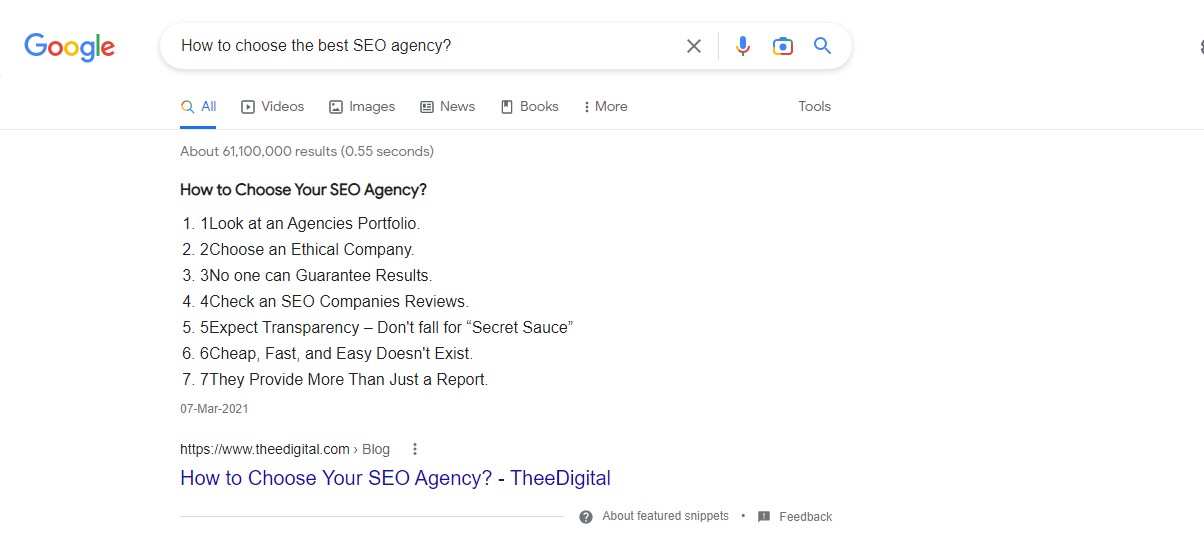Port Saeed, Dubai, UAE
We are available 24/ 7. Call Now. +971 588799440 hello@softigh.comGuide
Google vs Chat GPT: Could this be the End of Google's Era?
You might be surprised to hear that the recently launched ChatGPT, a generative language model developed by OpenAI, has the potential to undermine Google’s search engine.Is it true?Let’s figure it out with certain examples

What is Chat GPT
Chat GPT is a language generation model that is used to generate human-like text. It is trained on a large dataset of human language and can generate responses to prompts.
Moreover, Chat GPT is often used in chatbots and virtual assistants to provide responses to user queries and to carry on conversations with users.
This made me wonder: Can ChatGPT revolutionize the way we find information online? Possibly, it will take the place of Google and other search engines.
In any case, I was interested in how effectively the chatbot would function as a substitute for Google’s search engine. I asked ChatGPT certain questions rather than searching Google all day.
Here are some of the queries I put to ChatGPT and how it responded in comparison to Google.

Example#1
I asked Google and Chat GPT: “How to choose the best SEO agency?”
The answer of Chat GPT was:

Whereas Google answered it this way:

Google showed the featured snippet of SEMrush and Chat GPT gave a comprehensive answer and briefed about all the factors that should be taken into account while choosing an SEO agency. Though the answer was not very lengthy, it was enough to clear users’ confusion.
ChatGPT is a definite winner when it comes to visual aesthetics. Just take a look at how much noise and clutter a user must navigate through to solve Google’s search results.
Google, on the other hand, succeeds because of its access to more answers and in various directions.
Google versus Chat GPT
In this blog post, we will go through the fact that ChatGPT poses a potential threat to Google’s search engine dominance.
While Google has long been the go-to search provider, ChatGPT utilizes deep learning techniques, specifically a transformer model called GPT-3, to understand and provide relevant search results.
Some believe that ChatGPT’s use of “attention”, a feedback loop that helps in determining the most important parts of input data, could potentially challenge Google’s Page Rank algorithm, and disrupt the search industry.
However, Google’s large-scale operation may make it difficult for ChatGPT to surpass its dominance in the market.
Re-Evaluating the Future of Search
The potential of transformer models, like ChatGPT, to provide detailed and accurate autocomplete responses has led some to question the future of search.
While mobile phone suggestions may struggle to provide new and relevant responses after a certain point, transformer models like ChatGPT can continue generating detailed answers based on input sentences, potentially disrupting the search industry, and leading to a reconsideration of its future.
OpenAI has released ChatGPT as a free research preview and has demonstrated its potential for helping with debugging code. One of the ways ChatGPT could potentially surpass Google’s services is through its interactive nature, which allows for a more conversational search experience. Instead of clicking on links, ChatGPT provides users with the full answer to their query rather than a summary.
On the other hand, while Google has its own transformed-based natural language model called LaMDA, the company has been more reserved about making it widely available.
One potential reason for this caution is the computational intensity of such AI models, which can require significant CPU and GPU time and therefore impact profitability.
Moreover, Google has optimized its search process to maximize profit and serve results to a large number of users quickly, and the use of intensive models like ChatGPT and LaMDA could potentially hinder this efficiency.
What’s Next?
Google and ChatGPT are both search tools that provide users with relevant information based on their queries. However, they differ in their approach and the techniques they use to deliver these results.
Google, one of the largest and most well-known search engines, uses a combination of algorithms, including its famous Page Rank algorithm, to deliver search results.
These algorithms are regularly updated to serve users with more relevant and meaningful results. Google’s search results are also accompanied by targeted advertising, which has contributed to the company’s profitability.
On the other hand, ChatGPT is a newer search tool that utilizes deep learning techniques, specifically a transformer model called GPT-3, to understand and provide relevant search results.
Transformers, when trained on large datasets with many-layered networks, are highly capable of understanding text. Moreover, ChatGPT’s success is partly due to a feature called “attention,” a feedback loop that helps the model determine which parts of the input data are most relevant.
One potential advantage of ChatGPT over Google is its interactive nature. While Google serves the search results in the form of links, ChatGPT allows users to have a more conversational search experience by revealing the full answer to their query rather than a truncated summary. This could make ChatGPT more user-friendly and provide a more personalized search experience.
However, Google’s large-scale operation and years of optimization makes it a tough competitor to beat. The company can provide the search results to a vast number of users in fractions of a second, which could be a challenge for ChatGPT to match.
Additionally, AI models like ChatGPT and Google’s own LaMDA are computationally intensive and require significant CPU and GPU time, which could impact profitability.
Overall, it’s difficult to say that which search tool is better between Google and ChatGPT. Google has a long history of success and a proven track record, but ChatGPT’s deep learning techniques and interactive nature could potentially provide a more personalized and user-friendly search experience. Time will tell how these two tools will evolve and compete in the search industry.
Conclusion
Hope this article helped you in understanding Google and ChatGPT. In case of any more confusion, you can contact Softigh or email us. Our team will get back to you as soon as possible.
Recent Posts
Author
Softigh
Published
January 03, 2022
Follow us









